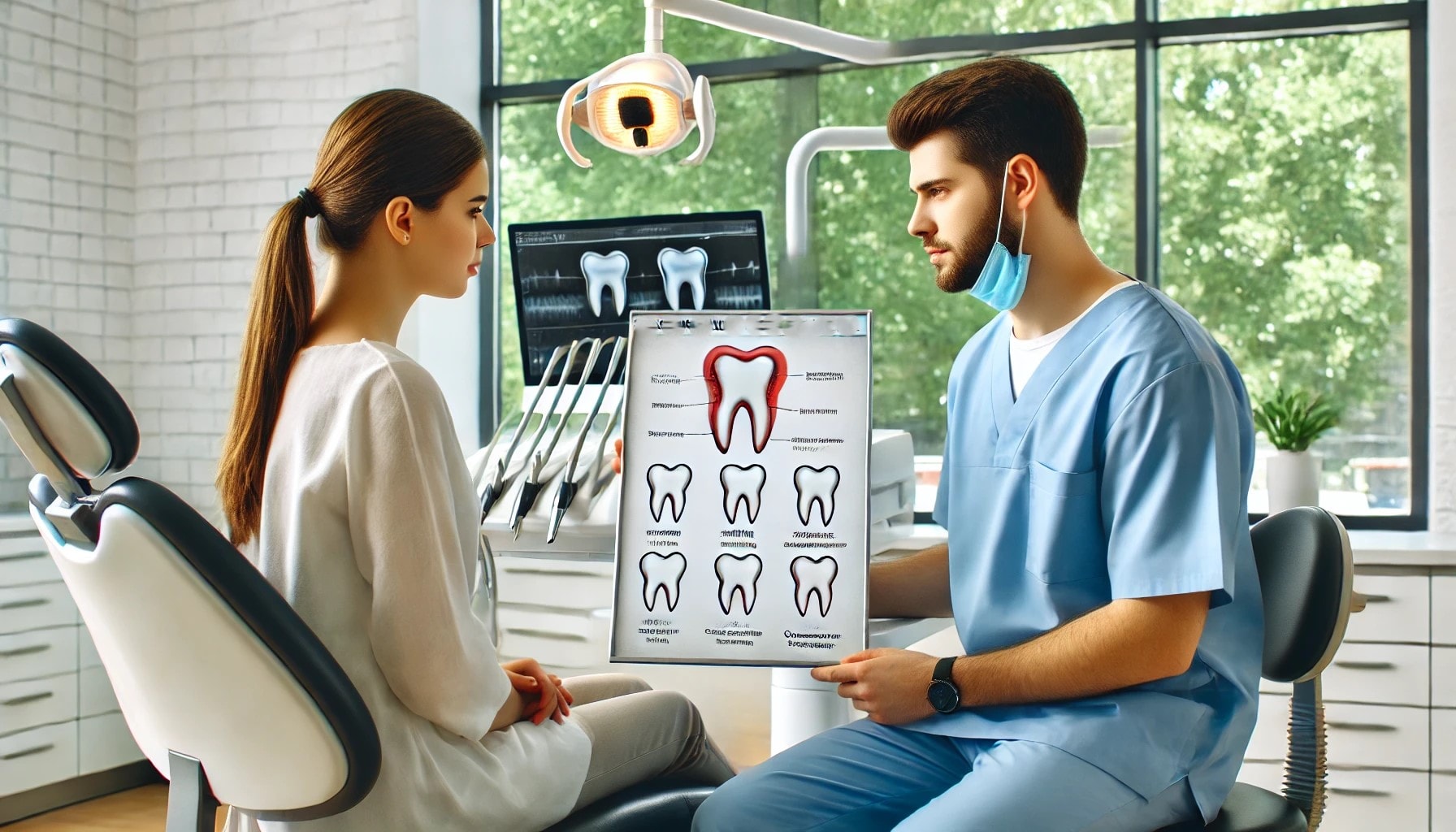Wisdom teeth, also known as third molars, are the last set of teeth to develop in your mouth, typically appearing in late adolescence or early adulthood.
For some people, these teeth grow in without issues, but for many, they cause problems such as pain, crowding, or infection.
In this article, we will discuss whether wisdom teeth need to be removed and what you should know about the procedure.
Why do wisdom teeth cause problems?
Wisdom teeth can cause problems due to their late eruption when the jaw is already fully developed and often lacks space to accommodate them.
This confinement can lead to partial eruptions, where the teeth are unable to fully break through the gums, creating an entry point for bacteria.
Additionally, improper alignment can cause crowding or damage to adjacent teeth. Impacted wisdom teeth may grow at various angles, leading to pain, swelling, or gum disease. These complications often necessitate removal to prevent further oral health issues and maintain optimal dental hygiene.
Signs it’s time to remove your wisdom teeth
Every case is unique, but there are some tell-tale signs that indicate wisdom teeth need to be removed. If you experience any of the following symptoms, it’s best to consult with your dentist:
- Pain or discomfort in the back of your mouth
- Swelling or redness around your gums
- Difficulty opening your mouth or chewing
- Frequent infections or cavities in the area
- Pressure on adjacent teeth leading to crowding and misalignment
Your dentist will evaluate your specific situation and determine if removal is necessary.
The wisdom teeth removal procedure: What to expect
The wisdom teeth removal procedure typically begins with a thorough examination and X-rays to assess the positioning of the teeth.
Depending on whether the teeth are impacted, your dentist or oral surgeon will discuss the best sedation option for your comfort, ranging from local anesthesia to general anesthesia. During the extraction, the practitioner makes an incision in the gum tissue to access the teeth, removing any bone blocking their path.
After the extraction, the site is cleaned, and stitches may be used to promote healing. Patients usually receive aftercare instructions to minimize pain and ensure a smooth recovery.
How to recover after wisdom teeth removal
Recovery after wisdom teeth removal involves several steps to ensure adequate healing and minimize discomfort.
First, rest for at least the first 24 hours, avoiding any strenuous activities. Apply ice packs to reduce swelling and take prescribed pain medication as directed. Stick to a soft food diet, gradually transitioning back to normal foods over a few days.
Maintain oral hygiene by gently rinsing with warm salt water and be careful around the surgical area. Avoid smoking, using straws, or spitting, as these actions can dislodge blood clots and impede healing.
Follow up with your dentist if you notice any signs of infection, such as fever, excessive swelling, or persistent pain. Rest assured that with proper care, recovery typically progresses smoothly within a week to ten days.
Here’s what you should know about whether your wisdom teeth need removal:
- Crowding: If wisdom teeth are impacted or grow at an angle, they can push against other teeth and cause misalignment or crowding.
- Infection and inflammation: If a wisdom tooth only partially emerges, it creates an opening where bacteria can enter, leading to gum infections and swelling.
- Damage to adjacent teeth: When wisdom teeth are not removed, they can cause damage to surrounding teeth by pushing on them or increasing the risk of decay.
- Pain and discomfort: If you are experiencing pain or tenderness at the back of your mouth, this might indicate a problem with your wisdom teeth.
- Your dentist’s recommendation: It’s essential to consult your dentist about wisdom teeth removal if they detect potential issues before they cause complications.
Summary
The decision to remove wisdom teeth depends on various factors, including whether they are impacted, causing pain, or affecting surrounding teeth. If you are experiencing discomfort or your dentist advises removal, it’s crucial to follow their guidance to prevent further oral health issues.
The extraction process is common and typically requires a few days of recovery. Regular check-ups with your dentist can help determine the best time for removal and ensure a smooth recovery.
Questions and Answers
What are wisdom teeth?
Wisdom teeth, or third molars, are the last set of molars to emerge in the back of your mouth, typically during your late teens or early twenties.
How do I know if my wisdom teeth need to be removed?
If you are experiencing pain, swelling, or crowding of other teeth, your dentist may recommend removal.
Can a wisdom tooth grow without causing problems?
Yes, some people have wisdom teeth that grow in correctly without causing any pain or issues, and they teeth to emerge may not need removal.
What happens if wisdom teeth are not removed?
If left untreated, impacted or misaligned wisdom teeth can cause infections, damage to other teeth, and long-term oral health issues.
What can I expect during wisdom tooth removal surgery?
The procedure is usually performed under local anesthesia, and the dentist or oral surgeon will remove the tooth, followed by a recovery period of a few days.
Is it necessary to remove all four wisdom teeth?
It depends on the individual case. Sometimes only a few teeth need to be removed if they are causing issues, while others may need all four removed.
How long does recovery take after wisdom tooth removal?
Recovery typically takes a few days, with most discomfort subsiding within the first week. You should avoid strenuous activities and follow your dentist’s instructions for aftercare.
Can wisdom teeth grow back after removal?
No, once a wisdom tooth is removed, it will not grow back.
Why do wisdom teeth sometimes cause pain?
Pain occurs when wisdom teeth are impacted, fail to emerge fully, or push against surrounding teeth, causing inflammation or infection.
When should I see a dentist about wisdom teeth?
You should consult your dentist if you are experiencing pain, swelling, or discomfort in the back of your mouth, as these could be signs of an impacted or problematic wisdom tooth.






